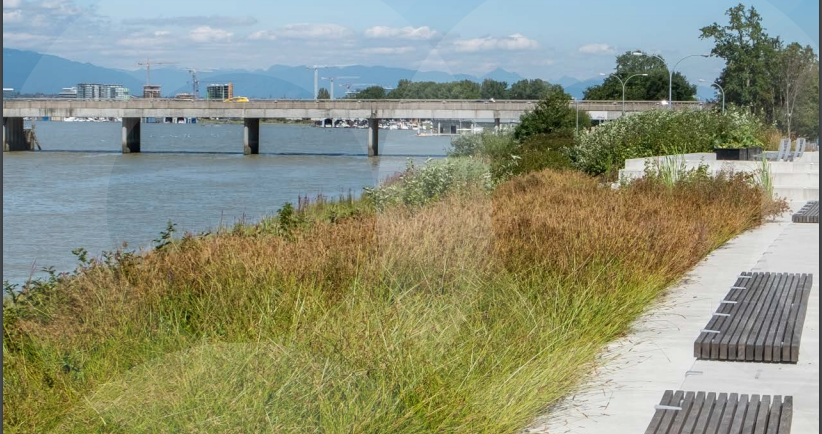One Richmond councillor, known for his environmental activism, was highly critical of the city’s sustainability report card.
Coun. Michael Wolfe, who has run provincially for the BC Green Party, said he thought more needed to be in the “Sustainability Progress Report: 2015-2020,” including actions Richmondites could take to preserve nature.
He also took issue with a chapter in the report called “Thriving Natural Environments,” saying the natural environment isn’t thriving in Richmond.
“I would rather say it’s in steep decline and if we’re not capturing that in this five-year report, it’s not being captured anywhere else,” Wolfe said.
He called the report “targetless,” adding it doesn’t have ways citizens can get involved or direction for staff to address issues.
Furthermore, he said the “ecological assets” of Richmond, mentioned in the report, are being trumped by the Farming First strategy and residential development.
“There is very little that supports the natural environment in Richmond,” Wolfe said.
Other issues he felt weren’t being addressed in the report included tree loss because of development and Himalayan blackberries – an aggressive invasive species - “taking over everywhere in Richmond.”
City council was voting on whether to put the report on its website and share highlights with the public. Wolfe was the only one who opposed accepting the report as is.
Coun. Harold Steves, however, said he wanted to pass the report on to his colleagues in Metro Vancouver to show what Richmond is doing in regards to sustainability.
“It’s a good document and I certainly intend to use in my last year I’m involved in the climate-change committee to try and get some of our programs adopted region-wide,” he told council.
In addition to environmental issues like the climate and energy, waste management and agriculture, the 93-page report includes information about what the city has done in regards to topics like a “resilient economy,” inclusiveness and a vibrant community.
In fact, the report outlines many initiatives that don’t necessarily touch on the environment. A new registration system, PerfectMind, is described in the report as “a cloud-based co-tenanted registration and facility booking software platform that delivers new features a minimum of four times per year, in addition to numerous hotfixes.”
While Wolfe put his focus on the natural environment at a recent council meeting, Coun. Chak Au highlighted the increase in farming revenue in Richmond that the report mentions, saying it showed that local farming is expanding.
According to the report, farmgate sales (how much farmers sell) has increased from about $37 million in 2001 to $57 million in 2016.
“It means our farming sector is very vibrant and active and also producing good results,” said Au.
There are 189 active farms in Richmond, according to the report, with berries accounting for 53 per cent of crops. Only 21 per cent of crops are vegetables.
Coun. Carol Day, who was on the same slate as Wolfe in the last municipal election, said she appreciated the report showed successes in Richmond, like reduced water consumption and food being diverted from the landfill, although, she added, more could be done.
“I’m happy we can put this report on the website and let people read it and see what success looks like – and then let’s strive for more,” Day said.



